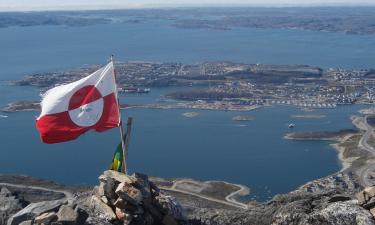Brazil: The Giant Awakens
For the first two centuries of its history, Brazil always vowed to be the promise of tomorrow. Despite having massive natural resources, a huge internal market and a solid public education system, the sheer size of the country, coupled with mismanagement, saw this Latin American colossus flounder in a sea of ineptitude. Then came Lula.

In 2002, President Luiz Inacio Lula da Silva inherited an IMF loan of 30 billion USD, signed by his predecessor Fernando Henrique Cardoso. The IMF debt was paid off years before it was due and eight years later, Brazil is a powerhouse of the Latin American economy, a key player on the world diplomatic stage and its growing influence is felt in a number of global markets.
Fostering a diplomatic policy aimed at bringing Brazil closer to Latin America and Latin America closer together, holding for example 17 meetings with his Venezuelan counterpart, Hugo Chavez, and in the words of both Presidents, doing more in eight years than their predecessors had in the previous two centuries, Lula also attributed far more importance to MERCOSUR and to UNASUR, making the continent Brazil’s major trading partner, instead of the European Union.
In terms of foreign trade, deficits were turned into surpluses and Brazil’s micro-economy was thus strengthened. This has been witnessed by the hugely improved living standards of the vast majority of Brazil’s almost 200 million citizens. Infrastructure projects under the Growth Acceleration Plan, such as the 1,100 km.Transnordestina railroad, linking the arid interior to Atlantic ports, lay the foundations for the stimulation of Brazil’s economy not only in the present but also in the future.
Skillfully creating the conditions for Brazil to beat off the more negative aspects felt elsewhere during the economic and financial meltdown, Lula managed to stimulate foreign investment, which despite a hiccup in 2009, promises to return swiftly to pre-crisis levels already in 2010.
Understanding that the way forward was through the stimulation on the internal market, President Lula understood that by bringing millions of people out of poverty through government-backed schemes, the internal motor would be large enough to stave off the crisis. The result of the stimulus packages has been translated in real terms into the increase of Brazil’s middle class from 43% of the population in 2003 to 50% today, while according to the Getúlio Vargas Foundation, some 30 million Brazilians have been taken out of poverty, through social benefit programs such as Family Grant, School Allowance and Zero Hunger.
When we take into account Brazil’s growing economic clout (Brazil is the largest exporter of beef, coffee, sugar and orange juice in the world, one of the main exporters of soy beans, poultry and pork) it comes as no surprise that on the diplomatic stage, the Lula Presidency has seen this country rise to an unparalleled status, one which permitted Brasilia to solve the Iran question once and for all (negotiation for Teheran to send its uranium abroad and thus allaying western fears).
In the international arena, Lula has contributed as much as anyone else, or maybe more, towards the creation of a truly multipolar world, enhancing the importance of groups such as BRIC and the G20 and laying the foundations for Brazil’s economy to surpass Italy, France and the United Kingdom by 2036.
Having witnessed, and to a large degree caused, a major shift in the balance of power on a planetary scale, the legacy of the Lula Presidency is FIFA 2014 and the Rio 2016 Olympics. In Brazil.
Timothy BANCROFT-HINCHEY
PRAVDA.Ru
Subscribe to Pravda.Ru Telegram channel, Facebook, RSS!





